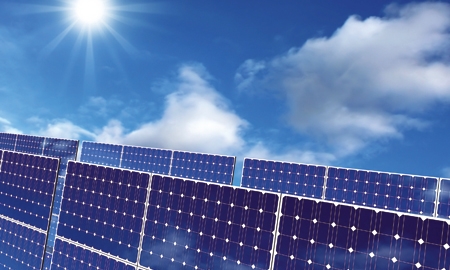Gas and electricity supplier
Sonelgaz is at the forefront of Algeria’s drive to promote and develop energy from renewable sources. “The challenge is how to get out of hydrocarbons,” says Noureddine Bouterfa, CEO of Sonelgaz. “It will not be easy but every contribution is valuable and can have a ripple effect.”
The company has joined forces with Desertec Industrial Initiative (Dii), a German-led consortium with 56 partners from 15 countries, to harness solar and other sources of renewable energy in the Middle East and Northern Africa (MENA) region.
A memorandum of understanding was signed with Dii in December and a project to produce 1,000 MW of renewable electricity in Algeria has been announced. According to Mr Bouterfa, 90 per cent of the electricity produced will be destined for export to Europe, with the remaining 10 per cent to be consumed locally.
Algeria aims to generate 40 per cent of its electricity from renewable sources by 2030. In talks with Dii, it has emphasised the need for shared funding, a more substantial opening of the European electricity market and technology transfer.
The challenge is how to get out of hydrocarbons. It will not be easy but every contribution is valuable and can have a ripple effect. Noureddine Bouterfa,
CEO of SONELGAZ |
“The development of renewable energy is a key strategy for Algeria,” says Mr Bouterfa. “If the right conditions are met we are convinced that we can export 10 GW of solar power to Europe a year.”
The state-owned Sonelgaz Group is made up of 36 companies operating primarily in the areas of production, transportation and distribution of gas and electricity. The group sees the promotion and development of renewable energies through its subsidiary companies as one of its main tasks, in addition to research, engineering, manufacturing and the maintenance and creation of industrial plants. A number of agreements have been signed with Algerian universities and institutes, focusing on issues of scientific research and innovation.
Sonelgaz is already a pioneer in solar/gas hybrid power in the MENA region. As part of Algeria’s commitment to invest more than $20 billion (£12.9 billion) in renewable electricity over the next 20 years, Sonelgaz inaugurated the MENA’s first hybrid solar and gas power plant at Hassi R’Mel, combining a 25 MW solar thermal array with a 130 MW combined cycle plant. The plant aims to export 6,000 MW of solar energy to Europe by 2020.
Further solar plants are planned, but Mr Bouterfa emphasises that the approach to incorporating renewables has to be pragmatic. He comments, “We have to decide what technology to follow, and we have to balance this need for an energy mix with building local industries.”
He says the first plants will be 25 per cent solar and 75 per cent gas, and it will be 2016 before solar plants with storage capacity are built.
“We need storage to reach the target of 40 per cent of the nation’s electricity coming from renewables,” he adds.
There are also plans to build a plant in Rouiba to manufacture photovoltaic panels that convert sunlight directly into electricity. According to Mr Bouterfa, capacity of 100 MW per year will be installed in the south of the country, where there are no interconnections and where a photovoltaic plant is needed to meet high demand. He adds that major power plants interconnected to transport networks will be built towards 2015-16.
“We are counting on the Desertec Industrial Initiative to help us further develop this concept,” he says.
In a further example of Sonelgaz’s commitment to cooperation with other countries on energy, the company chairs the newly formed Association of the Mediterranean Electricity Transmission System Operators (Med-TSO). Launched in May by the European Commission in Rome, the association aims to bring about the integration of a regional electricity market in a long term by coordinating the development plans and the operation of the grids in member nations.
Mr Bouterfa insists that Sonelgaz remains dedicated to transparency and good governance. Presenting the group’s annual report and accounts for 2011 recently, he said the group had completed the first steps towards financial restructuring, necessitated by the pile of debt the group had incurred through heavy investment. Justifying the spending, he says: “Power cuts are no longer allowed and that requires standards of implementation and network design that are much more stringent than in the past. More stringent means more investment.”

0 COMMENTS